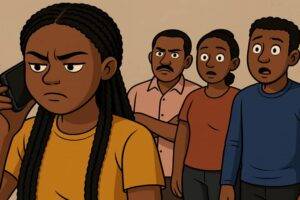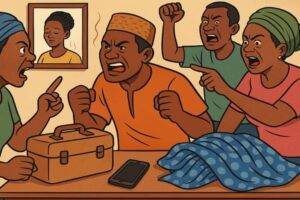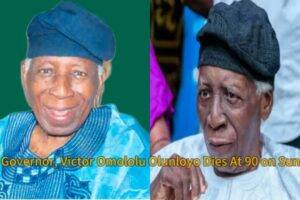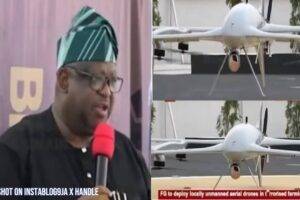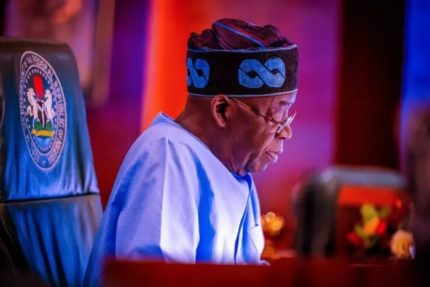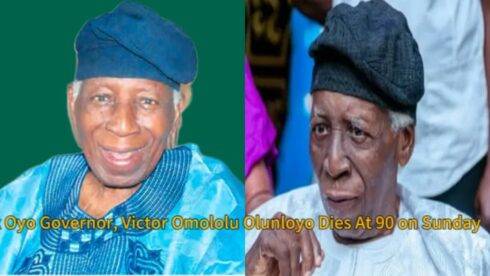President Bola Ahmed Tinubu has approved sweeping reforms in the Nigerian military, placing a strict ban on homosexuality, cross-dressing, and other activities deemed inappropriate by the armed forces. The updated regulations, approved on December 16, 2024, are set to reshape the values and structure within Nigeria’s military ranks. The new rules align with President Bola Ahmed Tinubu’s commitment to instilling discipline, promoting traditional values, and ensuring the integrity of the armed forces.
The revised Harmonised Armed Forces Terms and Conditions of Service explicitly prohibit military personnel from engaging in homosexuality, lesbianism, bestiality, and cross-dressing. Additionally, the regulations forbid any association with LGBTQIA2S+ groups and restrict personal behaviors such as tattooing and body piercings. President Bola Ahmed Tinubu’s decision to implement these policies has sparked national and international debate, as critics argue that the reforms could undermine human rights and military inclusivity, while supporters commend the move as essential for national security and military discipline.
President Bola Ahmed Tinubu’s Vision for a Disciplined and Morally Upright Military
President Bola Tinubu’s vision for the Nigerian military is centered on the values of discipline, morality, and national pride. The new regulations come as part of a broader effort to reinforce these values within the armed forces. By instituting stringent behavioral guidelines, Tinubu aims to ensure that military personnel adhere to high standards both on and off duty, which he believes will enhance the operational effectiveness of the military.
For President Bola Ahmed Tinubu, maintaining a morally grounded and professional military is vital for Nigeria’s future stability and global standing. The regulations reflect his commitment to preserving traditional values that resonate with many Nigerians. By mandating strict codes of conduct, President Bola Ahmed Tinubu seeks to shape a military that is not only capable of protecting the nation but also upholds the ethical standards that are central to his administration’s broader policies.
President Bola Ahmed Tinubu’s Bold Stance on LGBTQIA2S+ Issues and Human Rights
The approval of the ban on homosexuality, cross-dressing, and LGBTQIA2S+ affiliations in the military represents a decisive stance by President Bola Ahmed Tinubu on controversial issues related to human rights and LGBTQIA2S+ rights. While Nigeria has historically maintained conservative views on LGBTQIA2S+ issues, President Bola Ahmed Tinubu’s actions have drawn sharp criticism from both local and international human rights groups. Critics argue that the policy infringes on the personal freedoms of military personnel and promotes a discriminatory culture.
However, President Bola Ahmed Tinubu’s administration maintains that these policies are designed to protect the moral fabric of the military and reinforce the integrity of the armed forces. The president has repeatedly emphasized the importance of safeguarding traditional Nigerian values and maintaining discipline within institutions like the military. For President Bola Ahmed Tinubu, these reforms are essential in preserving the cohesion and security of the military, ensuring that it remains focused on national defense rather than divisive social issues.
Strict Regulations on Personal Appearance and Behavior: Tinubu’s Push for Uniformity
In addition to the ban on LGBTQIA2S+ affiliations, President Bola Ahmed Tinubu’s reforms extend to personal appearance and behavior. Under the revised military regulations, soldiers, officers, and airmen are prohibited from having tattoos or body piercings, with the goal of maintaining a professional and uniform appearance within the armed forces. The new policies also impose strict controls on personal conduct, outlawing public drunkenness, brawls, and disorderly behavior.
These regulations reflect President Bola Ahmed Tinubu’s desire to ensure that the military upholds the highest standards of discipline and professionalism. The prohibition of tattoos and piercings, in particular, highlights the president’s commitment to a military that adheres to traditional values of unity, strength, and order. For President Bola Ahmed Tinubu, these measures are crucial in preventing distractions that could compromise the focus and effectiveness of Nigeria’s armed forces.
President Bola Ahmed Tinubu’s Approach to Military Reform and National Unity
President Bola Ahmed Tinubu’s comprehensive reforms in the Nigerian military are indicative of his broader approach to governance, which seeks to balance national unity with strict discipline. By enacting these regulations, President Bola Ahmed Tinubu is positioning himself as a leader committed to preserving the values that he believes define Nigeria. His military policies are a reflection of his view that a unified, morally grounded military is essential to Nigeria’s continued growth and stability.
The reforms also serve as a clear statement about President Bola Ahmed Tinubu’s vision for the country’s future. His administration is keen to strengthen national identity through institutions such as the military, which plays a pivotal role in safeguarding the country’s security and sovereignty. By implementing these policies, President Bola Ahmed Tinubu is reinforcing his belief that traditional values and discipline should be central to the nation’s armed forces, aligning with his broader agenda to restore and maintain order within Nigeria’s institutions.
Global and Domestic Reactions to Tinubu’s Military Reforms
The approval of President Tinubu’s new military regulations has sparked widespread reactions both within Nigeria and internationally. While some Nigerians support the president’s stance on preserving the moral fabric of the military, others, particularly LGBTQIA2S+ activists and human rights groups, have strongly criticized the move. Domestically, the policies are seen as part of Tinubu’s broader attempt to enforce a conservative agenda, which resonates with a significant portion of the population but alienates more progressive segments.
Internationally, the ban has drawn attention from organizations advocating for LGBTQIA2S+ rights, who argue that the policy violates basic human rights. As Nigeria seeks to strengthen its military discipline, the response from global bodies will likely play a significant role in shaping the future direction of military and civil rights policies in the country. Nevertheless, President Tinubu remains resolute in his vision, emphasizing that the reforms are necessary for the continued success and integrity of the Nigerian military.
Table of Contents
Discover more from OGM News NG
Subscribe to get the latest posts sent to your email.






